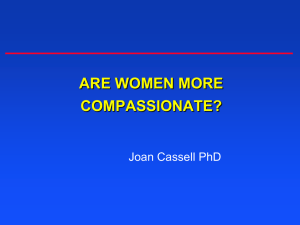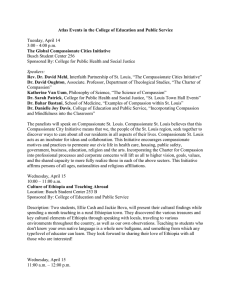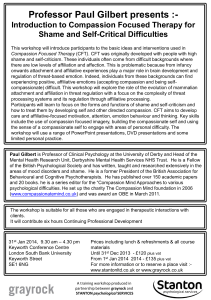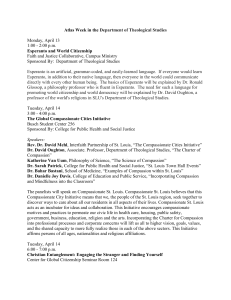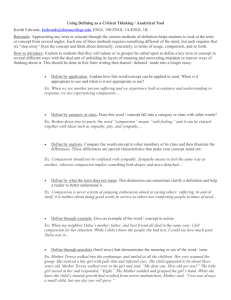Presentation Spirituality: Compassion & Social Responsibility
advertisement
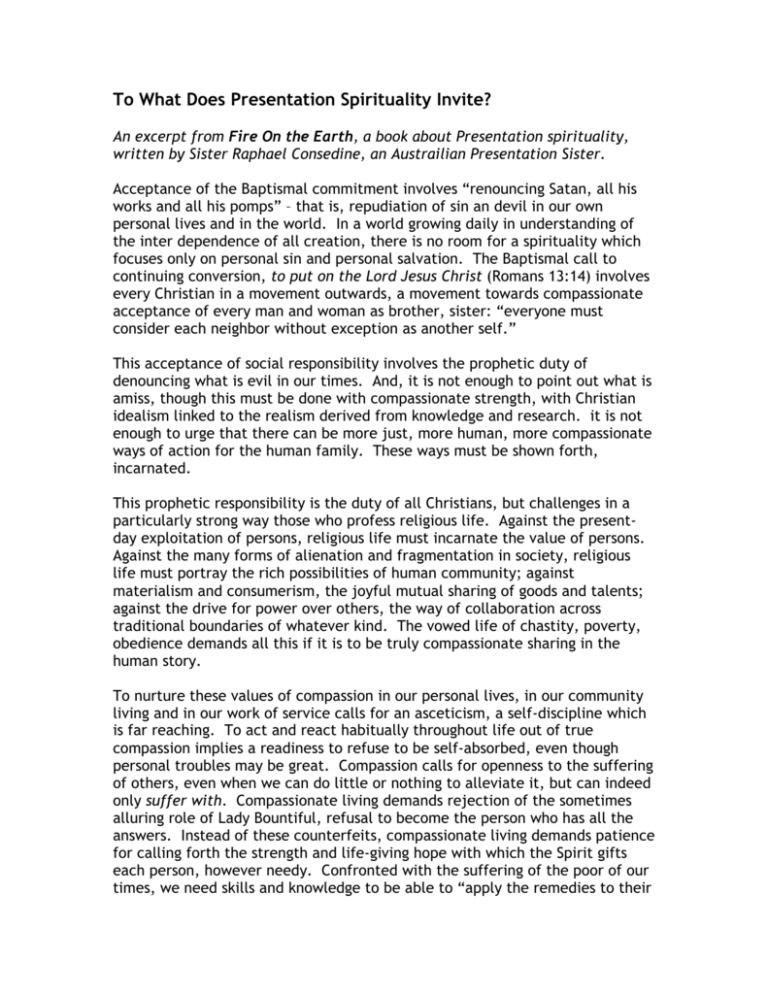
To What Does Presentation Spirituality Invite? An excerpt from Fire On the Earth, a book about Presentation spirituality, written by Sister Raphael Consedine, an Austrailian Presentation Sister. Acceptance of the Baptismal commitment involves “renouncing Satan, all his works and all his pomps” – that is, repudiation of sin an devil in our own personal lives and in the world. In a world growing daily in understanding of the inter dependence of all creation, there is no room for a spirituality which focuses only on personal sin and personal salvation. The Baptismal call to continuing conversion, to put on the Lord Jesus Christ (Romans 13:14) involves every Christian in a movement outwards, a movement towards compassionate acceptance of every man and woman as brother, sister: “everyone must consider each neighbor without exception as another self.” This acceptance of social responsibility involves the prophetic duty of denouncing what is evil in our times. And, it is not enough to point out what is amiss, though this must be done with compassionate strength, with Christian idealism linked to the realism derived from knowledge and research. it is not enough to urge that there can be more just, more human, more compassionate ways of action for the human family. These ways must be shown forth, incarnated. This prophetic responsibility is the duty of all Christians, but challenges in a particularly strong way those who profess religious life. Against the presentday exploitation of persons, religious life must incarnate the value of persons. Against the many forms of alienation and fragmentation in society, religious life must portray the rich possibilities of human community; against materialism and consumerism, the joyful mutual sharing of goods and talents; against the drive for power over others, the way of collaboration across traditional boundaries of whatever kind. The vowed life of chastity, poverty, obedience demands all this if it is to be truly compassionate sharing in the human story. To nurture these values of compassion in our personal lives, in our community living and in our work of service calls for an asceticism, a self-discipline which is far reaching. To act and react habitually throughout life out of true compassion implies a readiness to refuse to be self-absorbed, even though personal troubles may be great. Compassion calls for openness to the suffering of others, even when we can do little or nothing to alleviate it, but can indeed only suffer with. Compassionate living demands rejection of the sometimes alluring role of Lady Bountiful, refusal to become the person who has all the answers. Instead of these counterfeits, compassionate living demands patience for calling forth the strength and life-giving hope with which the Spirit gifts each person, however needy. Confronted with the suffering of the poor of our times, we need skills and knowledge to be able to “apply the remedies to their sores,” so a spirituality of compassion demands the effort and discipline to equip ourselves in this way. What Paul VI has called the asceticism of dialogue is needed as we learn how to confront or how to collaborate with others in order to attack at their roots the causes of suffering in our society. All this demands the asceticism of a balanced use of time, energy and resources in order to make consistently a compassionate response. The call to compassionate living, then, is no soft option. Yet because it is a call, it is also gift. For us it is a gift inseparable from our Presentation vocation. This gift is never received once and for all, but leads always deeper into the mystery of the divine compassion made visible for us in the human heart of Jesus. In contemplation of that mystery we are empowered to act with like compassion to repair the effects of sin and evil in our own lives and the lives of others, especially the poorest and weakest.


